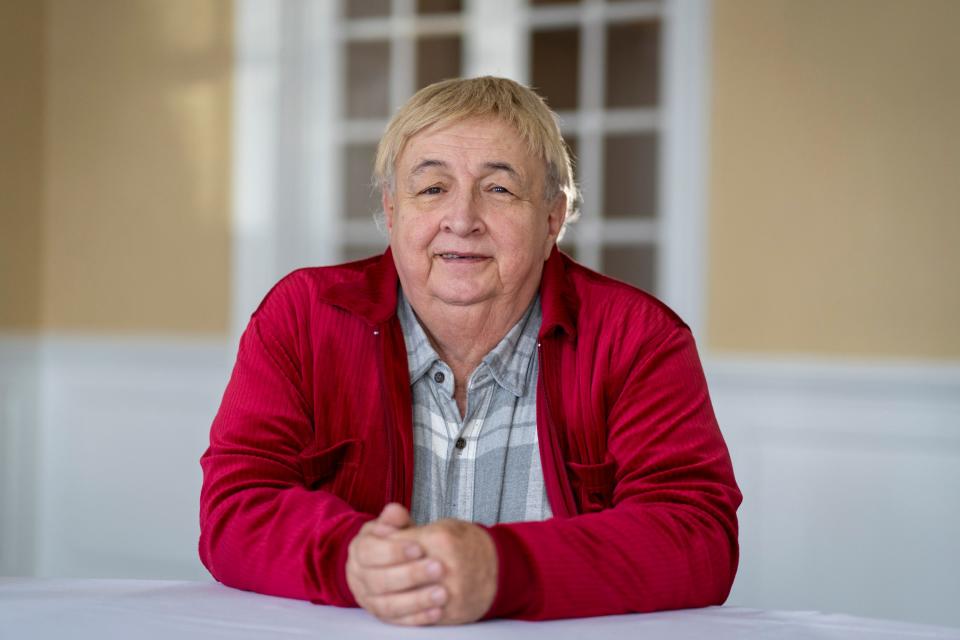Merriam-Webster Dictionary defines "dejavu" as "the feeling that one has seen or heard something before."
It's happening all over again. Just as signs for candidates running in our New Hampshire first-in-the-nation presidential primary of this past January have either been removed, smashed by slow plows, stolen as souvenirs, or otherwise met their end, batches of new signs are going up.
Another election is coming soon, this one for nominations by the Republicanand Democratic parties for their statewide Sept. 10 primary.That's when voters select nominees to face off against one another in the Nov. 5 election, just 19 weeks away.
Yes, 19 weeks away.Scary.
We've already seen some television advertisem*nts.More are coming, as well as mailings hitting our homes, and all those phone calls.If you're a real person insteadof a robot, you'll likely also be asked for a donation.
You might even get a call from a pollster, though I'm still waiting for one.
While most who donate to candidates don't want or expect anything in return, some will and do.That's why it's important that as voters, we follow the money.Many candidates just accept whatever's coming their way, and therein lies part of the problem.They get hooked by cash.We've seen that happen too often, certainly in Washington.
The news media frequently treats campaign fundraising totals as a badge of honor for candidates.Headlines of "who's on first '' stories are written about which candidate is raising the most funds, with only casual mention about where that funding comes from.Supposedly, raising lots of dollars indicates popularity.
Consequently, candidates will take almost any contribution they can get.That's an incentive for even more fundraising, with few dollars rejected.
A challenge for news media
To make good political choices, we need lots of information.The news media usually does a decentjob asking candidates about their positions on issues of the day.
But not always. Too often candidates just take standard positions with lots of words mixed together that don't tell us much.In one-to-one debates we hear what some consultant or focus-group came up with for the candidateto say. And sometimes they all sound alike.
But what if more news reporters ask a simple question: "Where do you get your money?" If reporters go beyond that and research campaign finance summaries, reporters can tell us even more. They just have to ask because even non-answers tell us something.Lies or deflection tell us more.
Secrets may come out − secrets the candidates would rather not be widely known.
If it becomes more of a liability to candidates and campaignsas to where their money comes from, there will be more conscience, and ethics, applied as to who takes what and how much from which source.News media can tell us that.
Our job as voters
Unfortunately the U.S. Supreme Court a dozen years ago with its "Citizens United" decisionallows non-disclosed money to be spent on behalf of candidates.That leaves us, as voters, having an especiallydifficult job to do.We have to be smarter.
Even skeptical.Certainly at least suspicious.
In addition to what news reporters can find out, how about we ask questions about where candidates get theirmoney? When we see them on street corners or at a forum, let's ask them.It's our right to know.
Lots of special interest organizations, corporations, businesses and large contributors give money to favorite politicians.Let's ask why they do that, and what the candidate will do to repay them.
This applies across the political divide −Democrats, Republicans, other parties and independents − all of them.Our questions might surprise the candidates, and their answers might surprise us.
How far does "one hand washes the other" go?
Just follow the money
Visit the website "OpenSecrets.org" It's a wealth of information, pun intended.Fun, too
Today's quote:"Politics isn't about big money or power games.It's about the improvement of people's lives." - Minnesota U.S. Sen. Paul Wellstone. A leading Democratic progressive, Wellstone served over 10 years and visited New Hampshire while considering running for president. He could have been great.He died in a plane accident in October 2002.
Next time: Thinking about after me.
Variously since 1969, Jim Splaine has been New Hampshire state senator for six years, representative for 24 years, Police Commission and School Board member, Portsmouth assistant mayor for 12 years and city councilor for 18 years.He can be reached atjimsplaineportsmouthnh@gmail.com.
More: Here are NH elections to watch in 2024 as governor, Senate, House, council fields are set
More: NH 2024 primary races for US House set: Who's taking on Pappas? Who will replace Kuster?
This article originally appeared on Portsmouth Herald: Splaine: Just follow the money in 2024 elections
